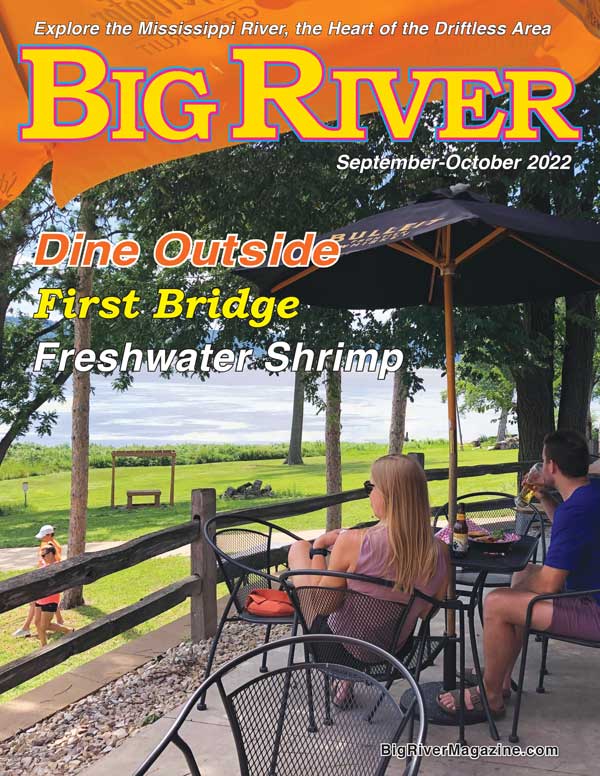Your subscription will start with the
March-April 2024 issue.
Digital (pdf) subscriptions Free for print subscribers. Just let us know if you are interested. Otherwise $28.00 /year for the digital sub alone. Subscribe here for a stand-alone digital subscription Call us at 507-454-5949 or email us with questions. |
|---|
From the Riverbank
Big River Magazine
September 2022
We All Need a Refuge
By Reggie McLeod
Can something be so big that you don’t see it?
The Upper Mississippi National Wildlife and Fish Refuge stretches along 261 miles of the river, from Reads Landing, Minn., to just upriver of Princeton, Iowa. The U.S. Fish and Wildlife Service manages this 240,000 acres of land, including countless islands and sloughs.
If Will Dilg and friends hadn’t convinced Congress to make this stretch of river into a national wildlife refuge, in 1924, many of those islands and sloughs would today be planted to corn and separated from the river by a wall of agricultural levees. Many of the free boat ramps on the river wouldn’t exist or would be charging a fee. Many of the remaining islands would be decorated with “NO TRESPASSING, HUNTING OR FISHING” signs.
There is no way of knowing how many of the people who camp, fish, boat, hunt, paddle, watch birds, hike, swim or just gaze at this treasure even know it’s a national wildlife refuge. However, it’s likely that many of them don’t know it, and many of us who do know it probably don’t think about it much.
That’s going to change in 2024, when folks on all 261 miles of the refuge celebrate its 100th anniversary. Plans are underway to have at least one special anniversary celebration in each of the four refuge districts: Winona, Minn.; La Crosse, Wis.; McGregor, Iowa; and Savanna, Ill. Many of the traditional festivals on the river will also celebrate it. We plan to devote the May-June 2024 issue of Big River to the past, present and future of the refuge.
We plan to devote the May-June 2024 issue of Big River to the past, present and future of the refuge.
All generations of river lovers will be encouraged to talk about it and to think about the ways we enjoy the refuge without having to pay any special fees or filling out any forms. Anybody can just paddle out to an island, pitch a tent and camp without paying a fee, making a reservation or even asking anybody’s permission. There aren’t many places where you can do that sort of thing.
It’s also important to remember that it’s a wildlife refuge, not a people refuge. Most of the pleasure that we humans get from the Upper Miss Refuge is from the birds, fish and other wildlife that thrive there. We also enjoy the same conditions that make it a good place for wildlife — solitude and the lack of roads, buildings and human traffic.
This is very important, because there will always be a place of wildness in our hearts that resonates to many of the same pleasures that charm our fellow creatures sharing this earth.
Big River Home • Subscribe • Links
Advertiser Info • Contact us • Books

